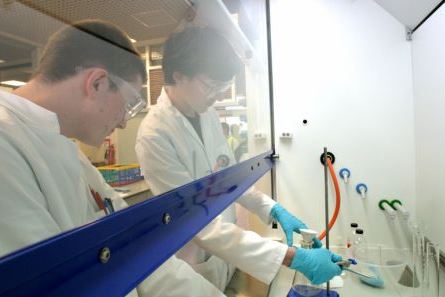Use our interactive lab primer to support your students’ transition from school to university. It is a visual aid to common laboratory techniques and covers all the core safety information, skills and apparatus.
Introduction
The interactive lab primer is a visual guide to common laboratory techniques. It is useful for 16-18 year old chemistry students as an introduction to working safely in the laboratory. The interactive lab primer is also useful for undergraduate students who need to use and develop many of the presented skills and techniques as part of their course. The aim of the interactive lab primer is to capture all the core safety information, apparatus and techniques which are all needed when carrying out practical chemistry.
The interactive lab primer - working safely
The chemistry laboratory is full of hazards and it is your responsibility to work safely for your own well-being and for the well-being of others. This section covers the basic rules and procedures that should be followed to minimise any risks.
The interactive lab primer - lab techniques

Good practical technique is essential for a successful and safe outcome for any experiment. This section sets out to illustrate how to assemble apparatus. We will use animations to illustrate the science behind the techniques as well as provide instructional videos for the most common techniques likely to be encountered in a university chemistry laboratory.
The interactive lab primer - lab apparatus

This resource shows the standard pieces of equipment found in most university and research chemistry laboratories.
The interactive lab primer - abbreviations, constants and glossary
Useful information and glossary of technical terms and expressions.

Additional information
The interactive lab primer was developed as part of the ‘Chemistry for our future’ Royal Society of Chemistry Teacher Fellowship Scheme. With contributions from Prof. David Read (The University of Southampton), Mr David Brentnall (The University of Nottingham), Dr Sandy Wilkinson (The University of Birmingham), Mr William Davey (The University of Sheffield), and Dr Anna Bertram (The University of Nottingham).




















No comments yet